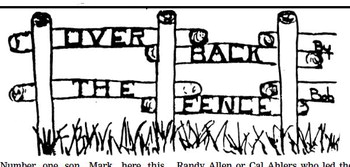Number one son, Mark, here ….


Number one son, Mark, here this week. I’m filling in for Dad as he enjoys
Minnesota Twins spring training in
Florida.


Number one son, Mark, here this week. I’m filling in for Dad as he enjoys
Minnesota Twins spring training in
Florida.